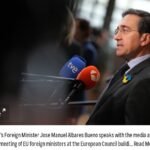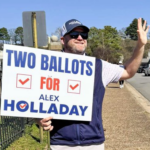Rumour has it that when senior civil servants at the Department for International Development (DfID) tried to interest the development secretary Andrew Mitchell in cash transfers, they couldn’t get anywhere. One morning he came across a column by my colleague Aditya Chakrabortty and was converted.
Within a short space of time the “must read” book for senior DfID officials was Just Give Money to the Poor, which charted the success of projects all over the world where aid was given straight to the poorest people – without all the consultants on fat salaries to analyse poverty reduction.
Mitchell jumped on the idea as a version of the “Big Society” applied to aid – bypass the institutional structures and empower the people directly. Interestingly, another DfID minister is believed to be less enamoured. Alan Duncan worries about that bogeyman of Conservative party nightmares: dependency. Won’t the poor just get hooked on handouts?
Probably the biggest and best known of all the cash transfer schemes in the developing world is the Bolsa Familia in Brazil. Since 2003, 12 million families have joined the scheme and receive small amounts of money (around $12 a month). Inequality has been cut by 17% in just five years, which is perhaps one of the most dramatic achievements in welfare ever recorded. The poverty rate has fallen from 42.7% to 28.8%.
Such is the fascination in this “social technology” that Brazil is now being sought for advice on cash transfer programmes by countries across Africa (Ghana, Angola, Mozambique), the Middle East (Egypt, Turkey) and Asia (including India). Even New York City has implemented a version of the programme.
“It’s social policy diplomacy,” suggested one of the ministers involved in the Brazilian programme, Dr Romulo Paes de Sousa, when I caught up with him in London after speaking at the Institute of Development Studies in Sussex earlier this week.
He’s delighted by the interest. “Brazil is developing a new model of donor whereby we give expertise as well as aid. Brazil is already one of the largest donors of food aid in the world.” He is also struck by the paradox that Brazil is expanding its welfare state just as Europe is cutting back on welfare.
There are some aspects of the programme, he explains, which have attracted particular interest. The first is conditionality. The payments are dependent on the family’s children staying in school until 17, and attendance must be at least 85% up to 14 years and 75% for the remainder. Another form of conditionality is that children get the full set of vaccinations in their first five years and that mothers attend pre and post-natal care.
“Bolsa Familia has definitely contributed to the improvement in infant and maternal mortality that we are seeing in Brazil,” said Dr Paes.
One of the advantages of the conditionality is that the investment in welfare has a real bang for its buck. For just 1% of GDP, Brazil is simultaneously boosting education levels, improving dire health indices and reducing poverty. This might meet Andrew Mitchell’s requirement for “value for money”.
What has been controversial is the transparency. All the names of recipients are publicly available on a website. Individual claims can and have been checked. Anyone can report abuse. But it’s working. Independent evaluations found that 80% of the money is reaching the poor; pretty good in a country in which welfare has been dogged by corruption.
One clever aspect of the programme was to put all payments through the banking system. Recipients use a debit card to draw out the money from their bank accounts at ATMs. The registering of claims is a more complex process and since the scheme started in 2003, a network of social services centres has increased from 1,000 to 9,000.
Inevitably, the programme has led to criticism that it will generate a dependency culture. Unlike another comparable programme in Mexico, it is not time limited. But Dr Paes points out that the level of support is low so it is designed to supplement income from a job, never replace it. It helps that studies of its impact show how the injection of this cash into particularly poor communities is helping stimulate the local economy. Other studies have shown that the vast bulk of the money is spent on necessities such as food, school supplies, clothing and shoes – that helped squash arguments that if you gave money to the poor, they would simply spend it on alcohol.
Such evaluations (including publications by the World Bank) have helped the programme win legitimacy, but Dr Paes admits it was very hard at the beginning, when the Brazilian economy was weak, to persuade middle class voters of this disproportionate investment in the “bottom of the pyramid”. “It’s got easier since then as the Brazilian economy has grown,” he added. It seems as long as everyone’s share of the cake is growing, the middle classes are prepared to tolerate this modest degree of redistribution.
Bolsa Familia is another example of how the emerging economies – such as Brazil and China – are increasingly becoming players in the global debate on aid and development. Dr Paes – who was educated in the UK as an epidemiologist – jokingly referred to the UK as an “old country”, and while very admiring of many aspects of the UK’s welfare state, he saw Brazil as now being in the driving seat in helping to forge new welfare models for export.
Since you’re here…
… we have a small favour to ask. More people are reading the Guardian than ever but advertising revenues across the media are falling fast. And unlike many news organisations, we haven’t put up a paywall – we want to keep our journalism as open as we can. So you can see why we need to ask for your help. The Guardian’s independent, investigative journalism takes a lot of time, money and hard work to produce. But we do it because we believe our perspective matters – because it might well be your perspective, too.
The Guardian is editorially independent, meaning we set our own agenda. Our journalism is free from commercial bias and not influenced by billionaire owners, politicians or shareholders. No one edits our Editor. No one steers our opinion. This is important because it enables us to give a voice to the voiceless, challenge the powerful and hold them to account. Facts are sacred. But as access to information has grown, the ability to distinguish the truth has become harder. The Guardian continues to provide its readers with the real story, at a time when factual, honest reporting is more critical than ever.
If everyone who reads our reporting, who likes it, helps to support it, our future would be much more secure. For as little as £1, you can support the Guardian – and it only takes a minute. Thank you.
Culled from The Guardian (Brazil)










